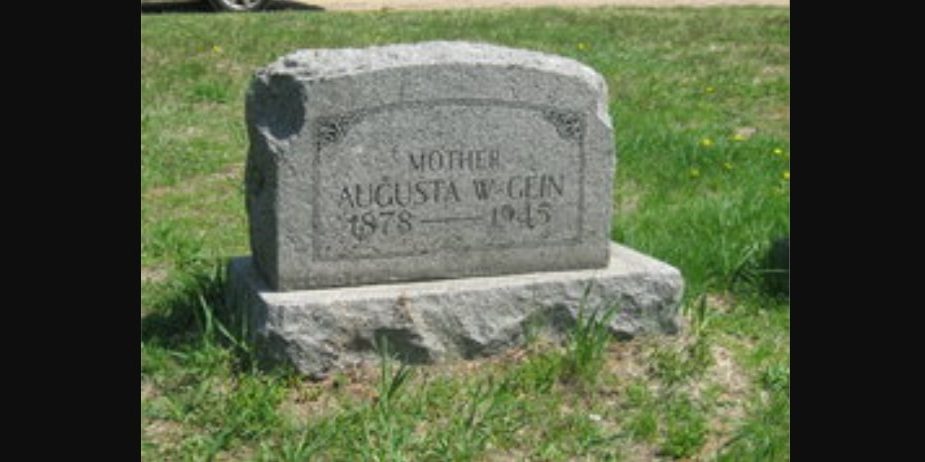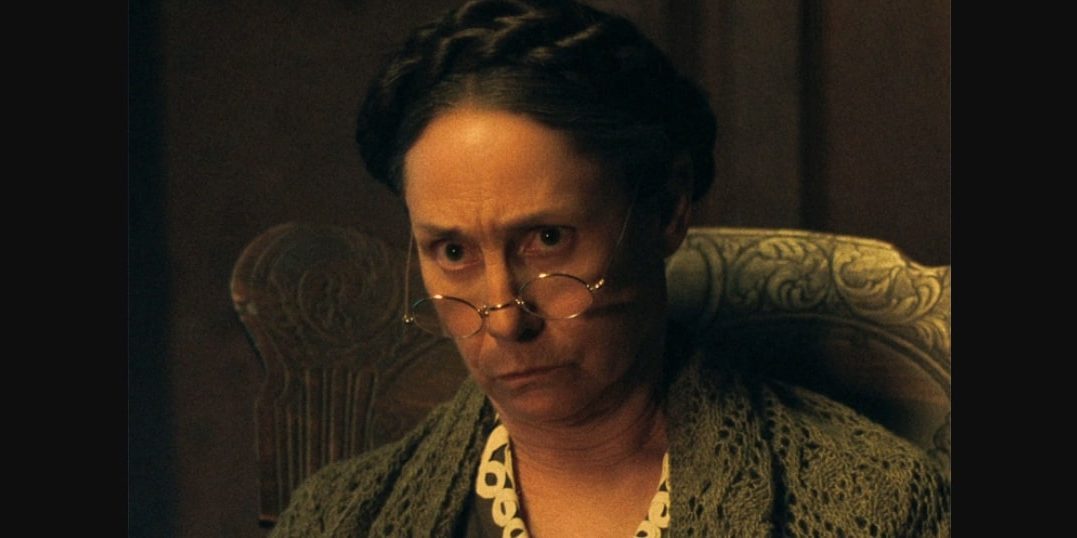A serial killer’s relationship with their parents, particularly their mother, is often a crucial area of study to understand their psyche and behavioral development. Netflix’s ‘Monster: The Ed Gein Story’ delves into the life of the infamous killer Ed Gein and highlights his complex relationship with his mother, Augusta Gein. Their relationship has long intrigued psychologists and criminologists due to Ed’s deep emotional dependence on her and his evident psychological decline following her death, which many believe played a central role in shaping his violent actions and disturbed mental state.
Augusta Gein’s Religious Beliefs Reportedly Had a Profound Effect on Her Younger Son
Augusta Wilhelmine Lehrke was one of eight children born to Frederick and Amalia Lehrke, a German immigrant couple from Prussia who settled in La Crosse, Wisconsin. The Lehrkes were devout Old Lutherans, a conservative sect that emphasized strict moral discipline, repentance, and the rejection of worldly sin, and she grew up with similar beliefs. In 1899, Augusta married George Gein, the son of fellow German immigrants, and the couple moved to Hamburg, Wisconsin. George worked various odd jobs, including carpentry and tanning, but reportedly struggled with alcoholism, which Augusta openly condemned. She, meanwhile, managed a grocery store in La Crosse, and in 1902, the couple welcomed their first child, Henry Gein.
In 1906, when Augusta was expecting her second child, she hoped for a daughter but gave birth to Ed Gein. By this time, she had reportedly developed a deep resentment toward men and became determined to shield her sons from what she viewed as the moral corruption of the world. In 1913, she purchased a small dairy farm in a remote area outside the city, an unusual move for a woman at the time, as it allowed her to keep her family away from the city’s sins. There, she isolated her family, teaching her sons to distrust others and warning them never to fall in love with women. George Gein was allegedly abusive and struggled with alcoholism, but Augusta reportedly paid little attention to him.
When George died of pneumonia in 1940, she allegedly showed little grief and instead concentrated on her life with her sons. It has been reported that Augusta had a particularly close relationship with Ed and shielded him from whatever he faced. When Henry began seeing a woman who had previously been divorced, Augusta reportedly disapproved and tried to discourage the relationship. However, in 1944, Henry died under mysterious circumstances, which left Augusta deeply shaken. Shortly after his death, she fell ill and had a stroke. She endured partial paralysis, which confined her to their small two-story farmhouse. She relied heavily on Ed, who cared for her and often read Bible passages aloud to her. By early 1945, Augusta appeared to be regaining her strength and had begun walking again.
Related
Augusta Gein Passed Away Following a Second Stroke

On December 29, 1945, Augusta Gein suffered another stroke and passed away in Plainfield, Wisconsin. According to several accounts, she had visited a neighbor, Daniel Smith, and upon allegedly seeing him with a woman who wasn’t his wife, she became distressed, leading to the stroke. Augusta was buried in Plainfield Cemetery, with only her siblings and Ed in attendance at the funeral. Her gravestone bears a single word, “Mother.” After her death, Ed became increasingly isolated. He later admitted to grave robbing, claiming he was attempting to create a “suit” that would let him “become his mother. The influence of Augusta’s teachings and her dominance over Ed has since remained a focal point for psychologists studying him and similar offenders.




You must be logged in to post a comment.